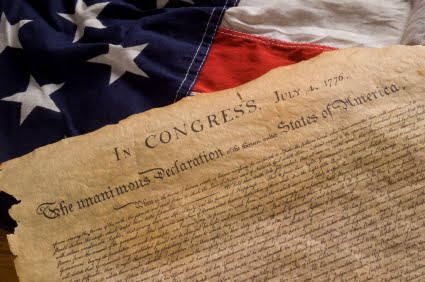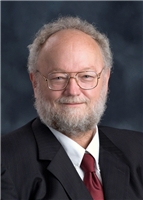WE HOLD THESE TRUTHS...
By Atticus Finch
Nervously standing in my office was a lad of thirteen, dressed uncomfortably, no doubt more formal than he had intended. Out of deference to his mother, he had combed his hair, put on a pair of pressed khaki pants and collared shirt for his interview with a lawyer. His purpose was to discuss governmental affairs, qualifying him for a Citizenship in the Community merit badge. After I dispensed with the obligatory small talk, I began an inquiry designed to elicit from the young man whether essential aspects of the makeup and purpose of our government were being taught in the public schools.
“Where do our rights as citizens of the United States of America
“We hold these truths to be self evident” wrote Thomas Jefferson, “that all men are created equal and are endowed by their Creator with certain unalienable rights, among which are life, liberty and the pursuit of happiness.” “Our rights then,” I explained, “originate from our Creator.” Imagine that. The government of the United States
These natural rights are derived from the common understanding of civilized man and were so universally accepted, that Thomas Jefferson did not pause to offer any justification for their application to the citizens of this country.
It is self evident that freedom is not confined within our borders anymore than the God who deigns them into existence can distinguish between, American and Spaniard;Britain
These natural rights are derived from the common understanding of civilized man and were so universally accepted, that Thomas Jefferson did not pause to offer any justification for their application to the citizens of this country.
It is self evident that freedom is not confined within our borders anymore than the God who deigns them into existence can distinguish between, American and Spaniard;
What then is the purpose of government? Once again the answer can be found from the words of Thomas Jefferson: “that to secure these rights, governments are instituted among men, deriving their just power from the consent of the governed…” “Understand this,” I declared to the young Boy Scout, “our rights are ordained by God; Governments are created by men for the express purpose of protecting these God-given rights.” The founders felt so strongly about the sanctity of this basic premise of natural law that violation of it became the justification for the Revolution that gave birth to the United States of America
Our liberty, our respect for life, our entrepreneurial economy, our standard of living, our free association among fellow citizens, our respect for human rights, and our freedom to worship or ignore the God from whom these rights originate are not creations of some legislature or city council. They cannot be established by reference to some administrative code or proclamation from some governmental functionary. These rights are burned into the very soul of man by the same finger that wrote the Ten Commandments, healed the sick, gave sight to the blind, defeated death with a glorious resurrection and touches even now the souls of men everywhere. While many citizens misunderstand the basic tenets of our Republic, there is at least one government official who does not need a civics lesson. “Americans are free people” proclaimed George W. Bush, “who know that freedom is the right of every person and the future of every nation. The liberty we prize is not America






